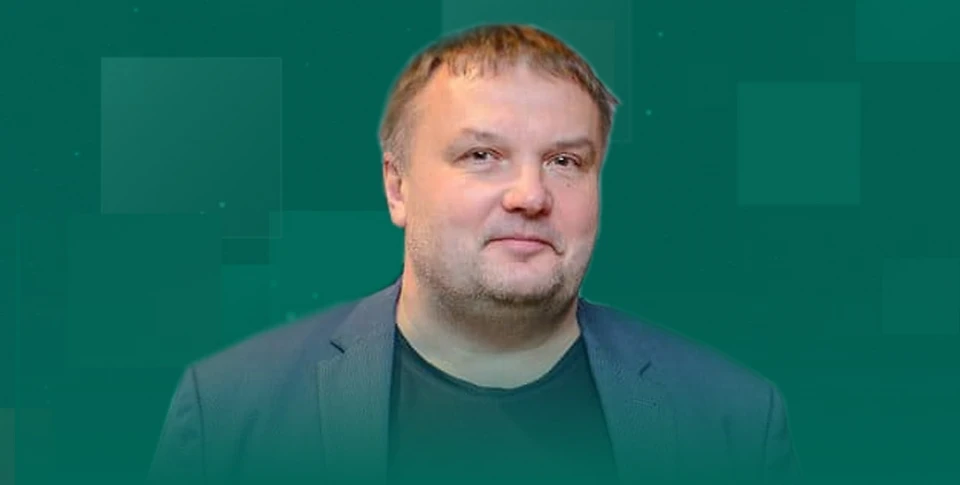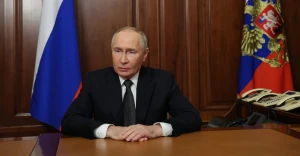
Putin is a rat cornering itself and waiting
We’ve heard a strong statement from the U.S. president about his future policy toward Russia. To dispel any illusions, Trump will to make a similar statement regarding Ukraine if deemed necessary
Therefore, Ukraine's primary task now is to clearly define its red lines and secure alignment with the United States on these boundaries. However, it must be acknowledged that NATO membership for Ukraine remains firmly off the table for the foreseeable future.
What will Putin’s reaction be?
Before exploring this, it’s crucial to highlight one key point: there is a consensus in the U.S. that any actions taken will not aim to force regime change in Russia. However, Putin, being deeply paranoid, fears this consensus might shift. This fear was evident both before Trump’s inauguration and prior to the start of the war in 2022, when Putin convened the Security Council to reaffirm the loyalty of his inner circle.
Putin's logic is as follows: he believes that if the U.S. rejects his ultimatum, Trump's office might decide that a mid-term goal will be to replace Putin himself and dismantle his regime. This is one of his biggest fears today. However, such a radical move today sparks more skepticism than optimism.
But let's return to Putin's possible actions. The Russian leader's strategy in such difficult situations is always the same: he waits. He is the rat that doesn't rush at the enemy but corners itself and waits for the situation to change. Putin is also clearly not ready for an open conflict with Trump, as his strategy now is to negotiate: "to sabotage the first round of talks through Ukraine." This seems to be well understood in Washington. And, among other factors, this is why Trump spoke to Putin not as an equal, but as a leader of a third-world country.
Recent days have shown that the Kremlin was completely unprepared for such a tough ultimatum. Therefore, the Russian strategy is as follows: military bloggers (ultra-nationalists) will stir up hysteria, claiming that this is no way to treat Russia, while the Kremlin will remain silent and wait for an opportunity to shift the topic. The fact that they are not silencing military bloggers indirectly confirms that Putin is not yet ready for negotiations.
Why did Trump issue such a tough ultimatum?
Trump must understand that under these conditions, Putin is unlikely to be willing to negotiate. However, he also understands that by raising the stakes so high, he can calmly explain why the war couldn’t be stopped in a single day.
Trump's team understands that it is highly likely that the Russians will set (or rather repeat) their previous unacceptable conditions:
- Ukraine's official consent to the fact that the annexed territories are Russian (signing of the relevant document);
- something about the status of the Russian language;
- reduction of the army and closure of missile programs;
- absolute sanctions lifting.
And the U.S. won’t be able to accept this. That’s why they are playing ahead.
What Trump didn’t anticipate was that he would not only be quoted in Russian space, but would become something of a "Russian Prigozhin," a new truth-teller. And his main message, which he unwittingly launched, is: "With Putin, there is war. Without Putin, there will be no war." Until now, this message existed only within a part of the liberal community. Trump has "broken the dam" for a large part of society that supports Putin but opposes the war (about 45%). This will become a new headache for the Kremlin in the coming months.
How will events develop further?
Indeed, as Trump said, the likelihood of effective negotiations still seems remote. The two basic factors for ending the war - the loss of Chinese support and the collapse of Russia's oil capabilities - are still distant prospects. Therefore, Putin is likely to gamble and go all-in. However, if everything goes according to Trump's scenario, by winter, he will start to wear down, and China is unlikely to offer help.
A rapid end to the war is possible, but only with quick agreements between the U.S. and China. Alternatively, Putin must be globally frightened by something, and his greatest fear is his own life.
About the author: Vadym Denysenko, political scientist.
The editors do not always share the opinions expressed by the blog authors.
- News












































